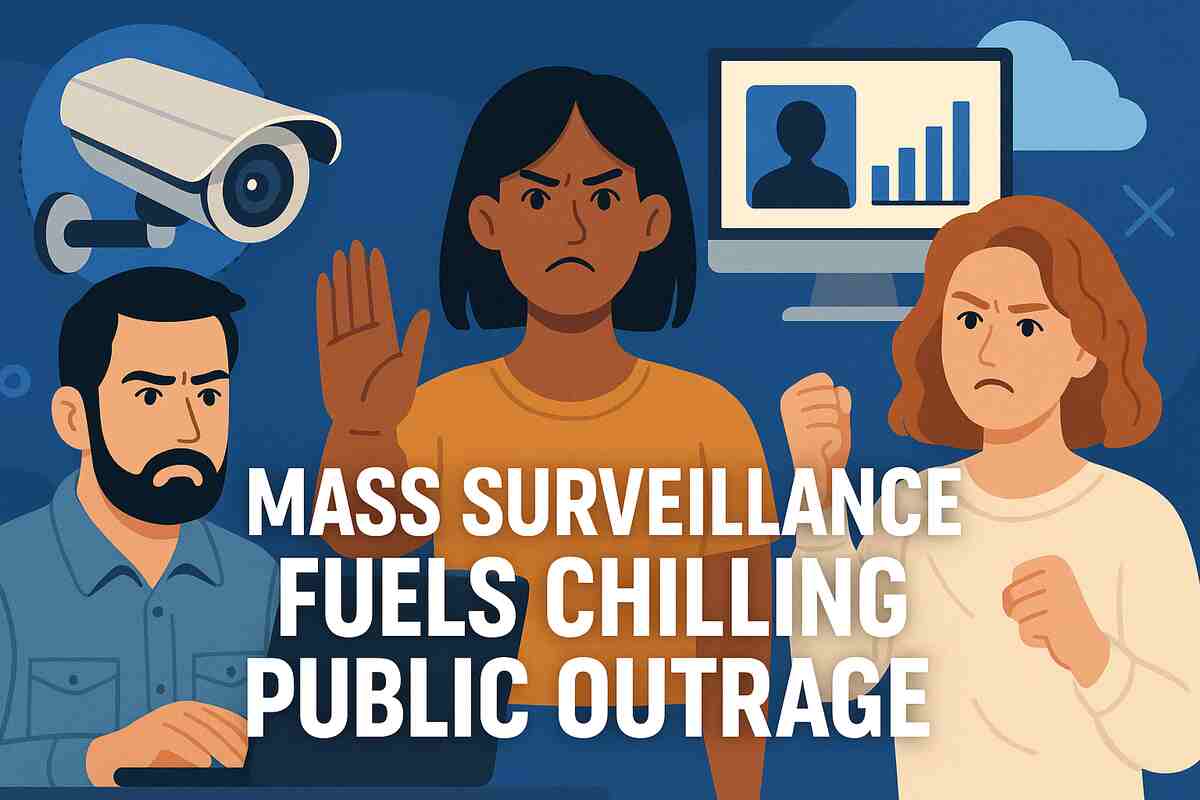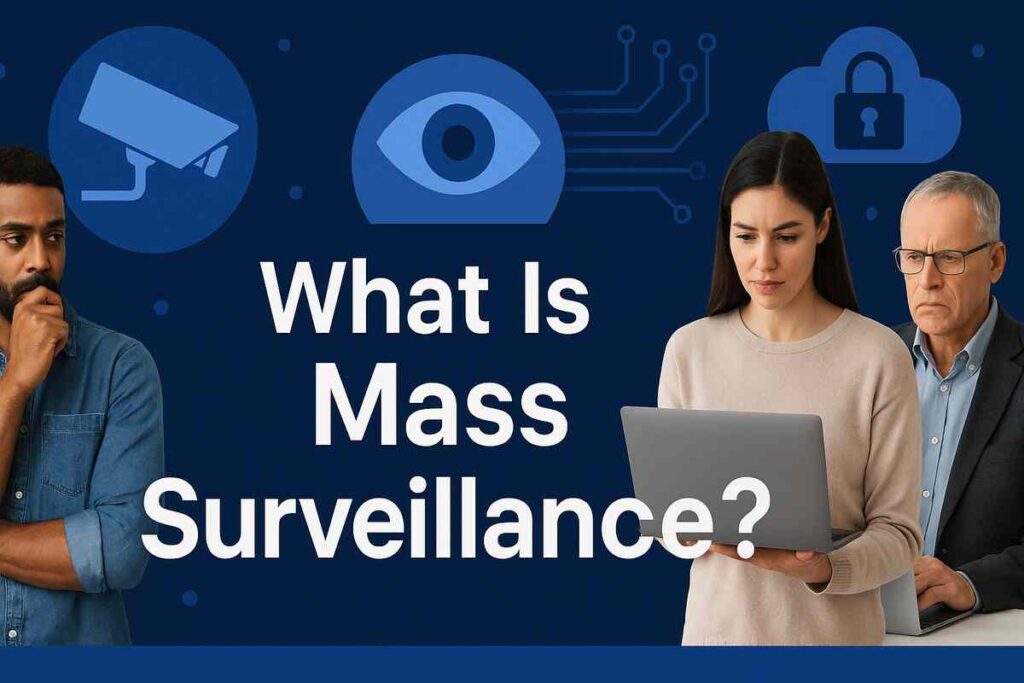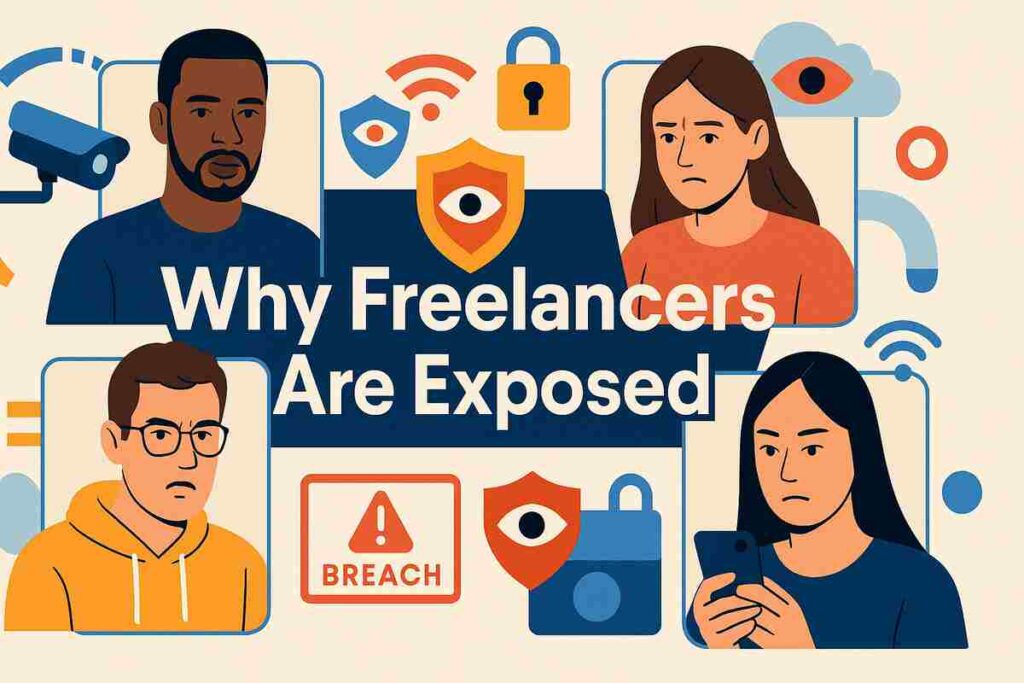Physical Address
304 North Cardinal St.
Dorchester Center, MA 02124
Physical Address
304 North Cardinal St.
Dorchester Center, MA 02124

In the golden age of remote work and digital freedom, a dark reality lurks behind every screen. Mass surveillance—once a dystopian concept—is now an undeniable part of everyday life. Governments, corporations, and service providers collect and analyze our data at unprecedented scales. And for freelancers and digital nomads, who depend entirely on the internet to work, communicate, and create, this constant monitoring is both invasive and threatening.
The backlash is real. Public outrage over unchecked surveillance is growing, fueled by whistleblower revelations, intrusive technologies, and the erosion of digital rights. Yet for many location-independent professionals, the implications are still underrecognized.
This article explores the depth of mass surveillance, the tools behind it, its impact on the freelance economy, and the actionable steps freelancers can take to regain control over their digital autonomy.

Mass surveillance is the large-scale, indiscriminate monitoring of individuals’ activities, behaviors, and communications—often through digital means. It is carried out by governments, intelligence agencies, and corporations to collect data for purposes ranging from national security to advertising.
According to Amnesty International, these practices often violate international human rights by undermining privacy, freedom of expression, and due process.
Mass surveillance is not limited to authoritarian regimes. It’s a global phenomenon.
These programs represent the tip of the iceberg, with countless local and private-sector initiatives also operating in the shadows.

Freelancers operate without corporate firewalls, in varied environments, often using cloud services, public Wi-Fi, and unencrypted tools.
In short, freelancers are often easy prey for data harvesters.

Revealed global surveillance by the NSA, including the collection of user data from Google, Apple, and Facebook.
Journalists, activists, and freelancers were targeted using Pegasus software, which exploited smartphone vulnerabilities to turn devices into surveillance tools.
This U.S. company scraped billions of images from the web to build a facial recognition database, sold to law enforcement and private firms.
Each incident contributed to eroding public trust and fueling outrage.
According to the Electronic Frontier Foundation (EFF), such surveillance creates a society where individuals self-censor and limit exploration—antithetical to the freelance ethos.
| Tool | Purpose | Why It’s Trusted |
|---|---|---|
| ProtonMail | Encrypted email | End-to-end security |
| Jitsi Meet | Video conferencing | Open-source, no registration needed |
| CryptPad | Online document editing | Zero-knowledge architecture |
| SimpleLogin | Email aliases | Stops tracking and spam |
| Tails OS | Secure operating system | Leaves no trace and anonymizes traffic |
Until then, freelancers must assume responsibility for their privacy.
The rise of mass surveillance has sparked a chilling, global outrage—and for good reason. Freelancers, who thrive on creativity, flexibility, and autonomy, find themselves under unprecedented digital scrutiny. From state agencies to private corporations, eyes are everywhere.
But outrage alone is not enough. Protecting freelance freedom in the surveillance era requires action—choosing the right tools, limiting exposure, and demanding accountability. The freelancer of the future is not just a creative mind or agile worker—they are a digital rights advocate, reclaiming space in a world that wants to watch their every move.
Mass surveillance may be rising, but so too is the awareness and resilience of those who refuse to be silently tracked.